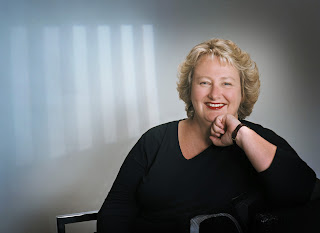One of the objectives of the HNSS is to assist
novelists to identify readers who can provide useful feedback about their WIP
(work in progress). If you are passionate about historical fiction, you may
wish to reach out to the following talented writers:
Bronwen Jones
Hi all. Would anyone be willing
to read my manuscript Home to the Lake, a historical novel set in New Zealand (NZ), to give an opinion on my story and publishing possibilities, and to help me
write a more compelling synopsis? A publisher in NZ (branch of big int'l
publisher) was complimentary but has rejected, saying a second opinion would be
beneficial at this stage rather than an edit.
The traditional NZ publishing industry is tiny, bleeding, and publishing very little. So I am seeking wider help.
My purpose in seeking assistance here is to ensure my story is in good shape before trying a publisher or agent abroad, or self-publishing on Amazon. Also, I am hoping that someone may be able to suggest a few agents/publishers to approach, given the nature of my story.
This is a very big request. But if anyone could assist, I would be thrilled and forever grateful. I could find a tiny budget - and definitely a spare room if you visit New Zealand.
Also, perhaps I could offer some assistance in return, editing or "community service" hours donated to HNS. My email is bronwenj@xtra.co.nz.
The traditional NZ publishing industry is tiny, bleeding, and publishing very little. So I am seeking wider help.
My purpose in seeking assistance here is to ensure my story is in good shape before trying a publisher or agent abroad, or self-publishing on Amazon. Also, I am hoping that someone may be able to suggest a few agents/publishers to approach, given the nature of my story.
This is a very big request. But if anyone could assist, I would be thrilled and forever grateful. I could find a tiny budget - and definitely a spare room if you visit New Zealand.
Also, perhaps I could offer some assistance in return, editing or "community service" hours donated to HNS. My email is bronwenj@xtra.co.nz.
Hello all.
I'm looking for someone willing to give my novel a look over and some critique/editing/proofreading help.
My novel is set in 1904 in the (fictional) Principality of Dalnerechensk in the Russian Ural Mountains; at the time when Europe was drawing itself into the jealous alliances that would lead to World War One. Into this rather backwards principality comes Laura Asanton, an early "Dollar Princess", who marries the Prince Regent Aleksei Vakhtangov.
But she is snubbed by his elitist, aging court and finds herself more and more in the company of Olaf the stablegroom, who opens her eyes to the beauty of the mountains, and the dire economic crisis Dalnerechensk faces.
I'm looking for someone willing to give my novel a look over and some critique/editing/proofreading help.
My novel is set in 1904 in the (fictional) Principality of Dalnerechensk in the Russian Ural Mountains; at the time when Europe was drawing itself into the jealous alliances that would lead to World War One. Into this rather backwards principality comes Laura Asanton, an early "Dollar Princess", who marries the Prince Regent Aleksei Vakhtangov.
But she is snubbed by his elitist, aging court and finds herself more and more in the company of Olaf the stablegroom, who opens her eyes to the beauty of the mountains, and the dire economic crisis Dalnerechensk faces.
Revolution is coming, and so is a Russian Army, to take back the
territory it lost four hundred years ago. But there are tragic secrets in the
Royal Line of the Vakhtangovs, secrets that will tear the principality apart,
if the Socialists and the Russians don't do it first!
Please send an email to hnssydney@gmail.com if you would be willing to help out.
Please send an email to hnssydney@gmail.com if you would be willing to help out.








